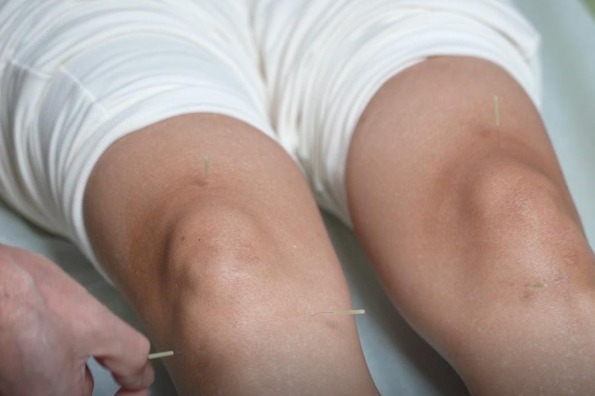French TCM inheritor raises profile of therapy back home

XI'AN — Philippe Emmanuel Couste feels he made the right decision to settle in China after living here for 15 years.
The 38-year-old French national brought his dream to fruition in Xi'an, Northwest China's Shaanxi province, becoming an inheritor of centuries-old traditional Chinese medicine after years of relentless pursuit.
Couste grew up in the southwestern French city of Pau, and medicine runs deep in his family. His grandfather was a doctor who treated the injured during World War II and his grandmother was a pharmacist.
"Both of them were interested in TCM, which had a subtle influence on me throughout my childhood and after," recalls Couste.
Although Couste only had limited knowledge of the Chinese language, he followed his curiosity and made the bold decision to come to China as an exchange student in 2007.
It seemed a random choice, at that time, for him to journey across the ocean and pursue his graduate degree in the ancient city of Xi'an. But, when he looks back after more than a decade, he feels "it was something like destiny".
During his university days in Xi'an, he met Ji Yunxuan, a Chinese girl who later became his wife. Coincidentally, Ji's father is a TCM doctor specializing in skin treatment.
"With his help, I was able to get closer to realizing my dream. I learned TCM from scratch, things like the four diagnostic methods, namely, looking, listening, questioning and feeling the pulse," Couste says.
Couste and his wife established a dermatology museum in 2019 in the Gaoling district of Xi'an. According to the couple, the museum has received tens of thousands of visitors.
Walking into the museum, visitors quickly notice the fragrant smell of herbs. Specimens of Chinese herbal medicine are neatly arranged and labeled with prescriptions with French and English translations.
Among the collection, numerous items that traveled thousands of miles from France frequently capture the attention of visitors. Acupuncture point maps with French terms are hung on the wall and a white ceramic gallipot embellished with traditional patterns is well-preserved in a glass case.
"My grandpa learned acupuncture by himself at home and he gave me those maps before I left for China, and my grandma used to prepare herbal medicine to treat patients with rheumatic pain in that pot," Couste says.
"These serve as a testimony to the integration of Western and Chinese medicine. Now I want to carry forward their legacy," he adds.
The past decade witnessed China's continuous efforts to promote TCM across the world. According to the National Administration of Traditional Chinese Medicine, so far, TCM has been applied in 196 countries and regions. China plans to work with countries involved in the Belt and Road Initiative to build 30 overseas TCM centers during the 2021-25 period.
"We have seen that an increasing number of foreign students come to China to learn more about TCM. I am told that books related to TCM with French translation can be found in many stores in France," says Couste, who also takes online courses in TCM from a French professor.
It is Couste's lifelong pursuit to enable more people in the world to understand TCM and help treat patients. "I have accepted an invitation from my hometown and will give classes in TCM to those interested to share its charm with others in France," Couste says.






